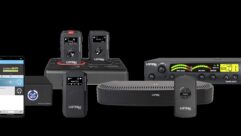
The fight over AM radio and its future in America’s cars continues, as auto industry reps push back against Congress’ recent efforts to preserve the platform. As AM radio has begun to fall off the radar of modern auto manufacturers, Congress has fought back by introducing the “AM Radio for Every Vehicle Act,” which would require every new consumer vehicle made to include an AM radio receiver.
“As more and more Americans adopt electric vehicles, we must ensure that they are equipped with AM radio. AM radio is—and will remain—an essential communications channel for emergency alerts and for disseminating news and other important information to residents of our district and communities across our country. I am proud to co-lead this bipartisan legislation which would ensure that EVs continue to be equipped with this basic but critical capability,” said Rep. Bob Menendez (D-N.J.), a co-sponsor of the bill.
See also: The upcoming Ford Mustang is the next vehicle with AM radio on the chopping block
“I would think that if Elon Musk has enough money to buy Twitter and send rockets to space, he can afford to include AM radio in his Teslas. Instead, Elon Musk and Tesla and other car manufacturers are putting public safety and emergency response at risk,” said Representative Josh Gottheimer (D-N.J.), another co-sponsor.
In response, the Zero Emission Transportation Association, the Alliance for Automotive Innovation, the Consumer Technology Association, and TechNet earlier this week sent a letter to the bill’s co-sponsors, protesting their proposed mandate. The letter debates the efficiency and effectiveness of mandated AM radio for emergency broadcast alerts, and claims that the legislation would stifle growth and innovation.
Further, the letter used the statistic that 97% of Americans use a cell phone, which would more effectively relay emergency alerts.
“Unlike radio alerts, they can also contain an embedded hyperlink to guide the recipient to helpful information within seconds of receiving the alert; given that 85% of Americans with a cell phone own a smartphone, the vast majority of people receiving an alert can take advantage of this benefit,” says the letter.










